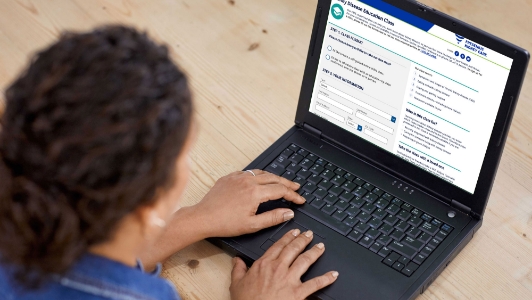What is Ammonia Breath and Is It a Symptom of CKD?
Chronic kidney disease (CKD) is one possible cause of having an ammonia taste in your mouth, sometimes called “ammonia breath.” Some people describe ammonia breath as having a metallic taste, while others have reported that it smells similar to urine. That taste—and the smell that can go along with it—is caused by a build-up in your body of a waste product called urea. Here’s what you need to know about ammonia breath, and why you should bring it up with your doctor.
What causes ammonia breath
With CKD, your kidneys aren’t as efficient at removing waste from your body. One of those waste products, urea, typically exits the body through urine after being filtered out by healthy kidneys. If your kidneys aren’t removing urea, your body will find other ways to remove it. One of those ways is to push the excess urea out through your breath. When the excess urea in your body reacts with saliva, it forms ammonia–which you then exhale through your breath. If you have CKD, this is what gives your breath that ammonia scent. The medical name for this is “uremic fetor”.
Does ammonia breath always mean that you have CKD?
Ammonia breath has other potential causes aside from kidney disease. Many of them have to do with a temporary decrease in kidney function, and some are unrelated to kidney function altogether. Some causes of ammonia breath are relatively minor or temporary, while others may indicate serious health issues.
Causes of ammonia breath include:
- Heavy alcohol use
- Eating too much protein
- Urinary tract infections (UTls)
- Urinary blockages
- Dehydration
- Sinus infections
- H. pylori bacterial infections

How do you treat ammonia breath?
Sometimes, ammonia breath can be treated by addressing the root cause. If you're on dialysis, ammonia breath may naturally still occur after treatments. This can be frustrating, but there are things you can do to help you find relief.
If you experience ammonia breath after dialysis treatment:
- Brush your teeth, gums, and tongue several times a day.
- Floss every day.
- Chew sugar-free gum.
- Carry a sample size of mouthwash in your bag.
- Avoid strong-smelling foods like garlic and onions.
- Drink the recommended amount of water.
- Make regular trips to the dentist.
- Quit smoking.
Other oral complications of kidney disease
Smelling ammonia on your breath isn’t the only oral symptom of kidney disease. You may also notice dry mouth, bleeding, and weakness in your jaw bones and joints. You may experience some tingling in your lips or tongue, as well as swollen salivary glands. Keep your mouth hydrated, and practice good oral hygiene to help minimize the effects of these symptoms. Having strong teeth and gums will help you enjoy a variety of foods without pain or discomfort, protect you from bacteria that can make you sick, and reduce your risk of inflammation to stay heart healthy.
Ammonia breath, dialysis and body image
Like some other symptoms of end-stage renal disease (ESRD) and side effects of treatment, ammonia breath can cause some body image issues and affect your confidence. It can be challenging to remember that you’re still the same person you were before you experienced this.
Remember that you’re not alone-and that it’s important to reach out when you need support. Lean on your care team. And consider connecting with people who may be experiencing similar challenges by joining an in-person or online support group. Talking about what to expect with ammonia breath and CKD or ESRD, plus learning ways to cope with the condition, can help you make a plan for moving forward.
Suggested topics
What Do High Creatinine Levels Mean?
Conditions that Cause Kidney Failure
There are many diseases and conditions that can lead to kidney failure. Kidney failure can be acute with rapid onset and may be...
What to Know About Becoming a Kidney Transplant Donor
Donating a kidney is one of the kindest things you can do for someone. While a kidney transplant may not last a lifetime...
